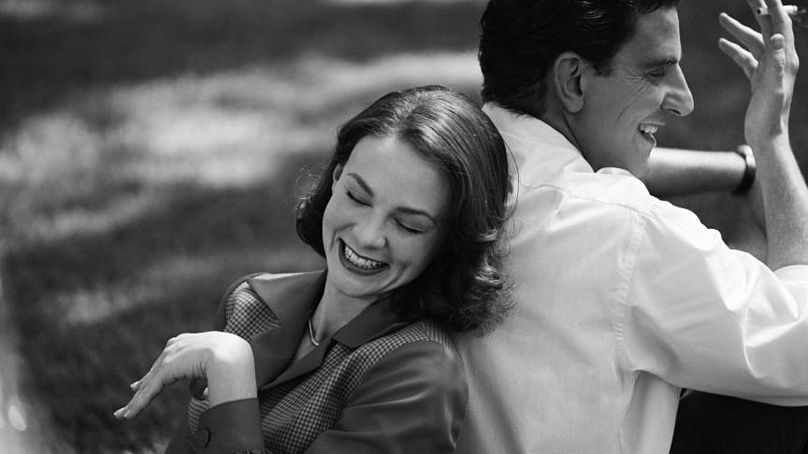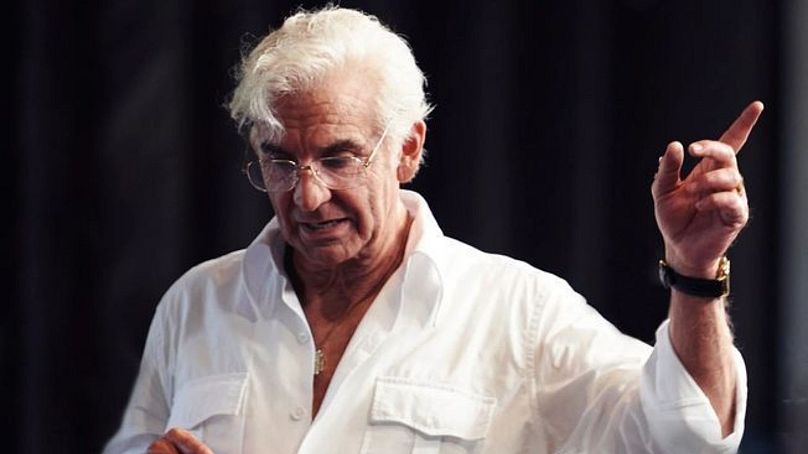A rich and sensitive biopic is rare. All the more reason to not miss out on 'Maestro'.
Bradley Cooper is back with a note-perfect biopic of the legendary composer-conductor Leonard Bernstein – a film which again proves, five years since A Star Is Born, that he isn’t just a heart-throb actor but a major director in his own right.
 ADVERTISEMENT
ADVERTISEMENT
 ADVERTISEMENT
ADVERTISEMENT
Indeed, the leading man is also behind the camera and on co-writing duties (with Josh Singer) for his sophomore effort, and Maestro deftly dodges the typical cradle-to-grave biopic formula by focusing on a decade spanning love story between the sexually fluid “Lenny” and Chilean actress Felicia Montealegre (Carey Mulligan).
We’re initially transported in gorgeous monochrome back to 1943, Bernstein’s big break at the age of 25 as he steps in to conduct the New York Philharmonic at Carnegie Hall. He has a male lover but begins to woo Felicia, quickly revealing his boundless appetite for people, as well as his incapacity to be alone. Which is quite the snag, as composing is often a very solitary discipline.
“My father thinks I could be the first great American conductor,” he tells his future wife.
“Is that what you want?” she asks.
“I want a lot of things.”
That he does, as Felicia knows the score from the get-go. Still, she's no quitter.
We move from their courtship (featuring an excellent 'On The Town' song-and-dance number) to the 50s, 60s and 70s, showing the ups and downs of a 27-year marriage that ends with Felicia not blaming her husband’s sexuality but acknowledging her own arrogance in fooling herself into thinking that what Lenny could give her was enough.
Mulligan shines, giving an affecting performance that never overplays emotional beats and complements Cooper’s mesmerising but showier-by-design turn. Maestro is as much her story as it is Lenny’s, and both actors are magnetic on screen, bouncing off each other beautifully. Whether it’s flirting, tender understanding or insults, their dialogue sounds real, as it often overlaps in its fast-paced rhythm. This verbal pace works in unison with Matthew Libatique’s superb cinematography, which also instils an old-fashioned, Golden Age of Hollywood mood.
Cooper remains utterly convincing as the aging artist through the decades – with no hint of distraction from the prosthetics. Don’t pay any attention to the silly hoopla regarding the “Jewface” fuss about the prosthetic nose. Focus instead on how brilliant the aging effects looks throughout the film, as well as that a final-act scene, a recreation of Bernstein's legendary performance of Mahler in New York’s St. Patrick’s Cathedral. Cooper captures the composer's manurisms and all-encompassing verve in an eerily accurate way, while his brief (and superbly edited) interaction with his then ex-wife in the audience is bracingly intimate. It will punish your tear ducts in the most beautiful of ways.
If there’s one thing that could prove divisive in Maestro, it’s the lack of career context. Those unfamiliar with Bernstein’s towering artistic accomplishments may find themselves starved of background. Some cues do tip their hat to his musical output, but there’s a distinct absence of insight here.
However, this feels like a very conscious choice, to better focus on the moving portrait of a marriage, driven by the creative ambition of a charismatic and narcissistic man with a thirst for life, and the compassionate and conflicted woman who held it all together. In doing so, Cooper eschews tired biopic templates and the genre’s hagiographic leanings, which either lead to sanitized accounts or box-ticking exercises as stale as a Wikipedia page.
You’ll just have to make do with a stylish and moving tribute to an artist and a family, as well as the confirmation that Cooper is the real deal just as much behind the camera as he is in front. And considering both Martin Scorsese and Steven Spielberg had a crack at this long-gestating biopic before Cooper got his talented mitts on it, Maestro was no guaranteed masterpiece.
We got one anyway.
Maestro premiered at the Venice Film Festival this year and is out in select theatres now. It hits Netflix on 20 December.












